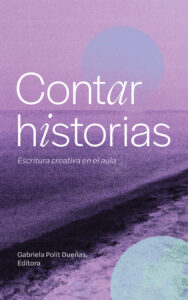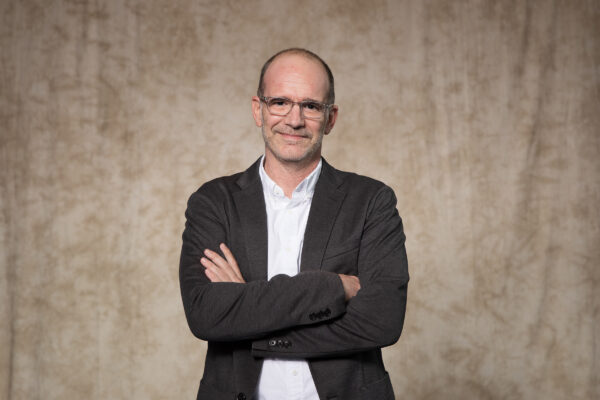In the city of Quito, Ecuador, a young girl wrote poetry in the bedroom of her home. Her mother would collect these poems, and the girl would recite them at family gatherings. The girl, Gabriela Polit, attended a Catholic school and went on to study philosophy. She came to the United States in her 20s with a full-ride scholarship to obtain her master’s degree and doctorate in New York. During her time in graduate school, she began writing short stories and reading them on the radio.
In the fall of 2008, Polit settled down in Austin and began teaching at The University of Texas. She now teaches creative fiction and nonfiction Spanish classes. Polit also helped launch the Spanish Creative Writing Initiative in the Department of Spanish and Portuguese and has recently published a book with stories written by English-speaking students as well as native and heritage Spanish speakers.
Polit said the process of writing enables students to know themselves better.
“Somehow, you detach yourself from that person you were at the classroom or when you felt that you didn’t belong,” Polit says. “The fact that you have to find the closest word that defines your feeling at that moment — at the same time that may enable you to express what you’re feeling.”
We are the story we tell ourselves and the stories we can tell to others.
The Spanish Creative Writing Initiative was inspired by the visit of novelist and screenwriter Laura Esquivel in fall 2019. Hundreds of people showed up to hear her speak at the Blanton Museum of Art. That interest proved to Polit that there was a need to highlight the potential of Spanish-language creative writing. Students in the program are not all native or heritage Spanish speakers, but they share a love for the language.
“The heritage of speakers are a very important part of this project,” Polit says. “But the Spanish creative writing is attracting people who want to learn a language, a culture, and to use the tools and the knowledge of that culture to be creative.”
Polit and her colleagues launched a creative writing in Spanish minor in Fall 2022 in the Department of Spanish and Portuguese. The minor is open to students who fulfill requirements in Spanish. Spanish is one of the top five most spoken languages around the world today. The United States ranks fourth among countries with the largest Spanish-speaking populations. It brings students comfort to use the language of their family and home, and Polit opens the doors to students who “code-switch” between Spanish and English.
“When they want to use their Spanish, they don’t need to explain themselves, they don’t need to justify,” Polit says. “It happens naturally.”
Initially, Polit had a webpage where she published the stories of her students. But she wanted to make it easier for parents who don’t know how to navigate the internet to read the works and to open the stories to a broader audience.

Polit went to HornRaiser, the University crowdfunding platform, to raise money for a book project. “Contar Historias,” which she edited, is a collection of 20 stories from her students published by the Tower Books imprint of the University of Texas Press. The stories feature various voices and rich forms of Spanish because, as Polit points out, the Spanish of someone from Colombia is different from that of someone in Lubbock, or Massachusetts, or Argentina.
“We celebrate the variety of ways of speaking,” Polit says. “That is a music that we want to conserve, that we want to celebrate.”
Polit wants to use the book as an example of what can be done to promote students’ creative work in the language. In the future, she hopes for it to become a series.
Students in Polit’s creative writing classes work closely with her as they exercise their storytelling skills. The classes are organized as workshops where students read literature, analyze the mechanics of writing, and read one another’s work to give feedback on their stories.
“It’s a muscle that we have to train, we have to make stronger,” Polit says. “We will be better people if we tell our stories because we transform ourselves when we tell our stories.”
Students tell Polit they are relieved to talk about themselves in the safe environment of a classroom where they are not tested on knowledge but instead listened to.
“Enjoy, don’t think about grading. Just enjoy the process. Enjoy, even if it’s painful. Enjoy because it will give you a reward that is beyond the grade,” Polit says.
Students undergo a transformation by putting their personal experiences on paper. Creative writing allows the freedom of grammar, point of view, and past or present tense, Polit says, and you detach and put yourself in that paper. It’s you.
Polit, who previously published a novel, a collection of poems and several scholarly works, continues to write her own creative works. She uses writing to answer questions about what bothers her and what she has gone through. Her imagination transforms her emotions from an event and translates that feeling into a story. It is a challenge that she loves.
“We’re storytellers,” Polit says. “We are the story we tell ourselves and the stories we can tell to others.”



